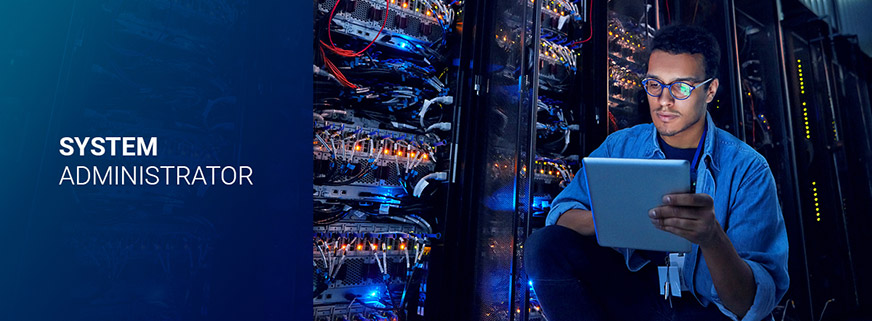
System administrator very well knows as System Admins plays a vital role in configuring and upkeeping your system operation. A system administrator is a person who is responsible for the reliable operation of computer systems and especially for multi-user computers, such as servers. The system administrator has to ensure the uptime, performance, resources, and security of the servers they manage to meet the proper needs of the users, without exceeding a set budget when doing so. To meet this needs system admins are free to install or upgrade computer components and software; provide routine automation; maintain security policies; troubleshoot; train or supervise staff; or may even offer technical support for projects.
A Related field of System Admin:
System Administrators are the needs of many organizations which includes separates positions.
A database administrator (DBA) Role involves maintaining a database system and is held responsible for the integrity of the data and the efficiency and performance of the system.
A Network administrator helps to maintains network infrastructure such as routers and switches. Network administrator also diagnoses problems with these or with the behavior of network-attached computers.
A security administrator the most important one can be known as a specialist in computer and network security. Security includes the administration of security devices such as firewalls, as well as consulting on general security measures.
A web administrator task involves for maintaining web server services such as Apache or IIS which allow for internal as well as external access to web sites. A web administrator task includes managing multiple sites, administering security, and configuring necessary components and software.
A computer operator is the one who performs routine maintenance and upkeep, which includes replacing failed drives in a redundant array of independent disks (RAID) which needs an operator to be present physically in the room with the computer.
SRE Site Reliability Engineer – takes a software engineering or programmatic approach to managing systems perfectly.
Training and Qualification:
Bachelor’s Degree in the field of computer science, information technology, electronics engineering, or computer engineering is a must to be System Administrator. Further being a practical nature of system administration and the easy availability of open-source server software, many system administrators enter the field self-taught.
A system administrator‘s responsibilities might include:
- The most important task of a System Admin is to manage a server and keep it up to date. This includes:
- To Analyze system logs, keep the servers and configurations up to date!
- Identifying potential issues with servers, hardware, software and network-related.
- To Apply OS updates, patches, and configuration changes.
- To Install and configure new servers, hardware and software.
- Maintenance of server and data security.
- Responsible for SOP’s and the configuration of the system.
- To Troubleshoot any reported issues by customer.
- Making sure there is no downtime in the network.